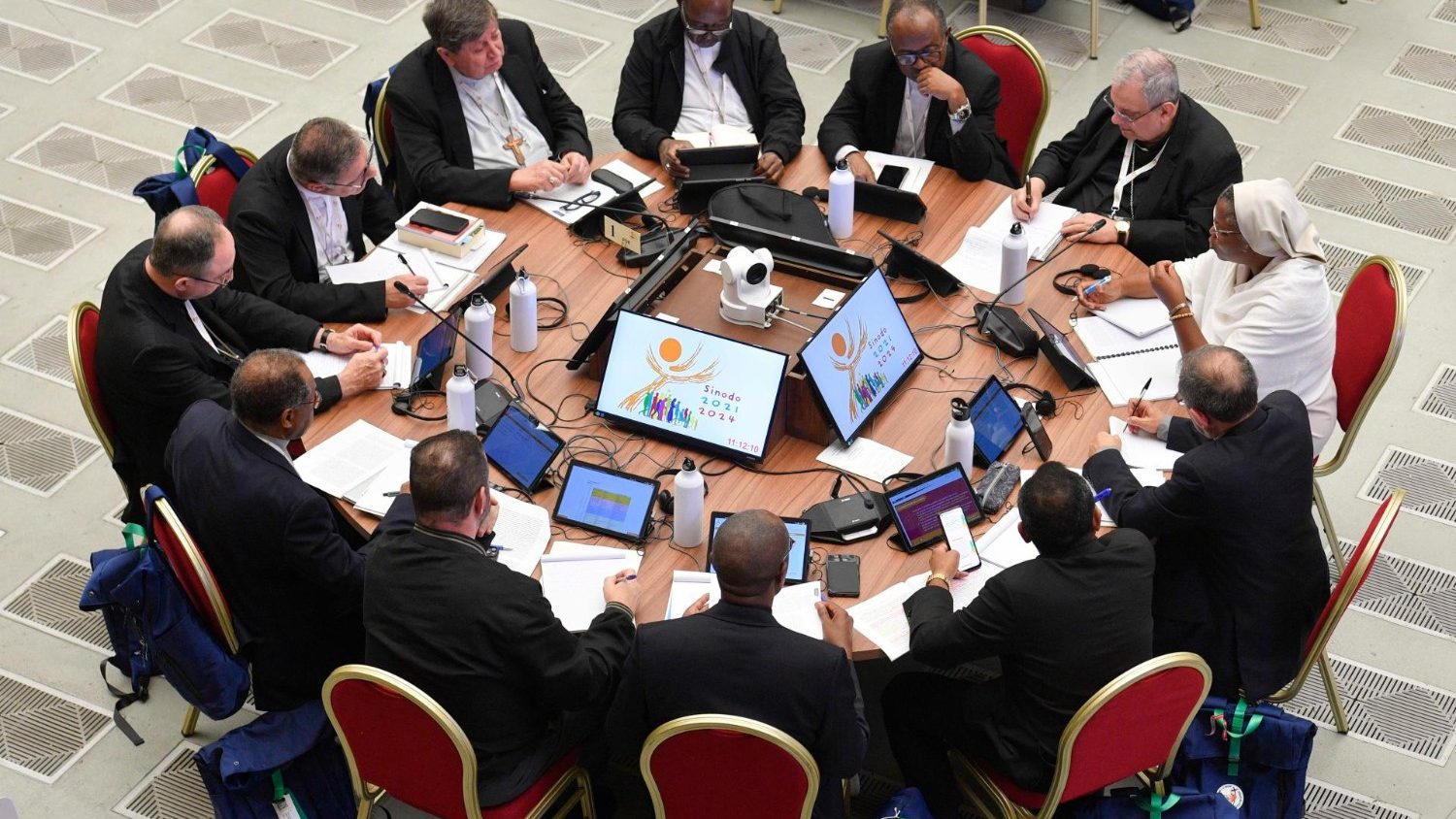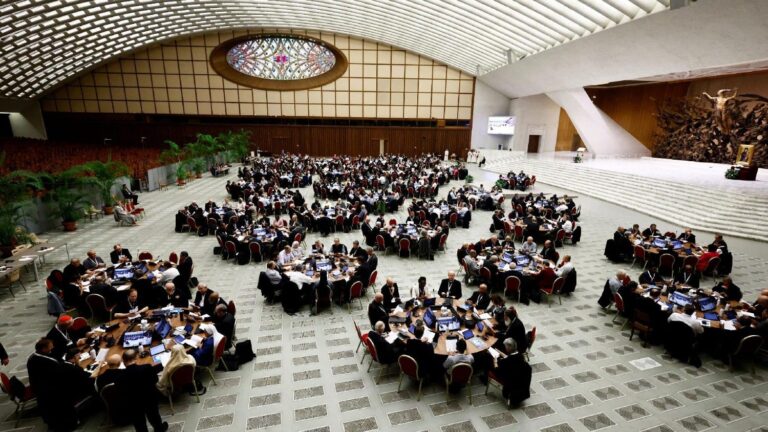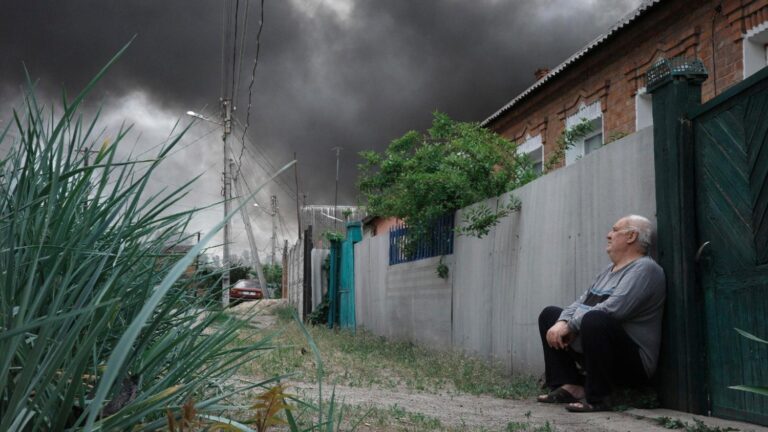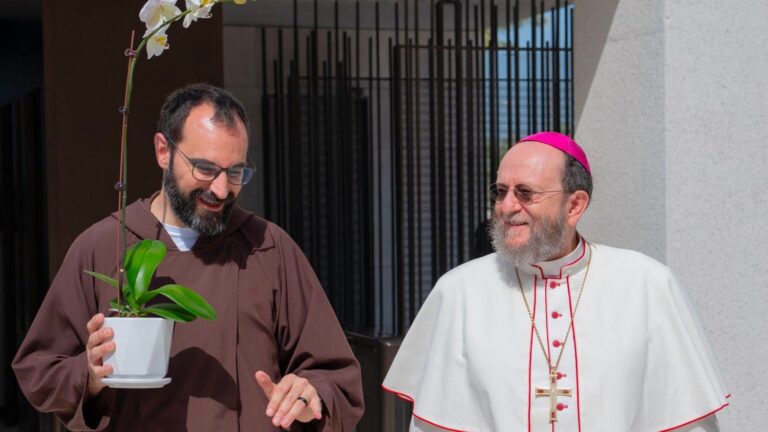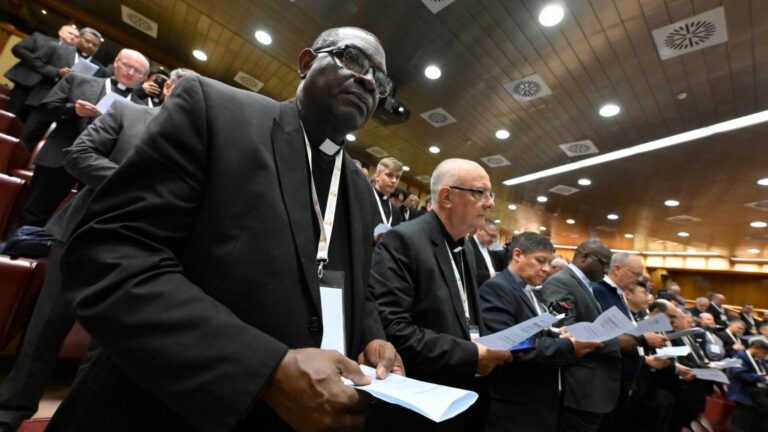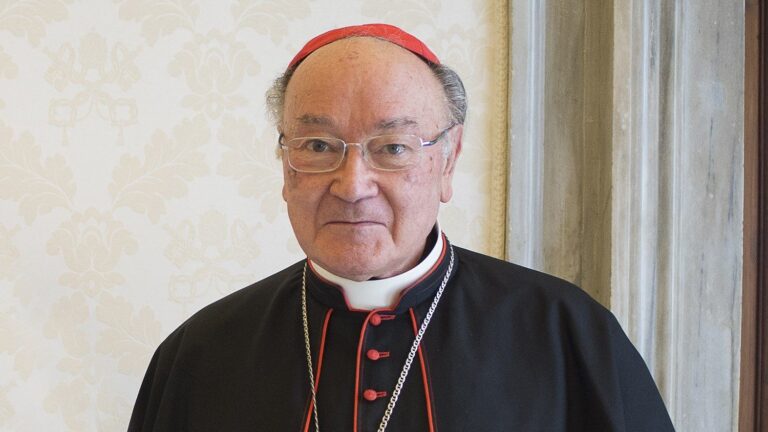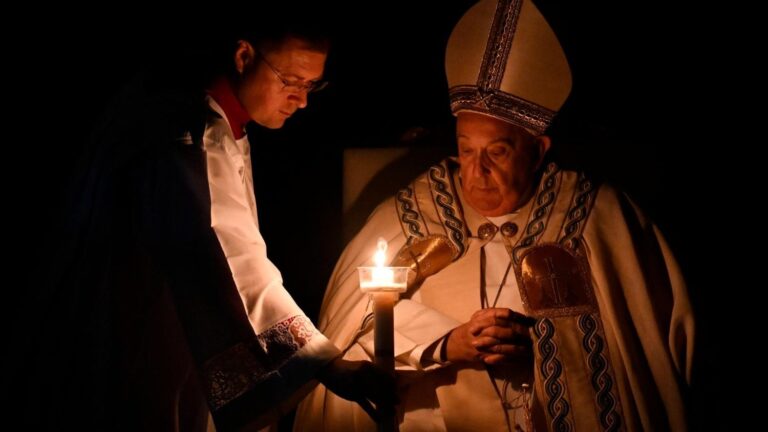Study groups present work, goals to Synod
At the first General Congregation of the Synodal Assembly, on October 2, members of the ten groups created by the Pope in February to explore the theological and canonical aspects of various themes, as well as representatives of three other Commissions, explained the work accomplished so far. and future prospects.
By Salvatore Cernuzio
The role of women and the possibility of women deacons; the risk of disappearance of the Eastern Churches because of the war; a “pastoral” approach for polygamists in Africa; the proclamation of the Gospel in the digital age; relations between bishops and priests and with the people of God: the criteria for selecting episcopal candidates; a “synodal” perspective on the work of the nuncios: and ecumenical dialogue: during the first General Congregation of the Assembly of the Synod of Bishops, which opened yesterday afternoon with the Pope’s speech and the cardinal’s introductory speeches Grech and the general rapporteur, Cardinal Jean-Claude Hollerich, gave the floor to representatives of each of the ten study groups established by the Pope last February to explore certain subjects at the theological and canonical level.
The representatives of the groups, each introduced by a short video and having a maximum of three minutes to present, presented the work carried out as well as future projects, which provide for constant dialogue (unlike those who hypothesized a “parallel” path towards the Synod) between the synodal fathers and mothers and the study groups.
The “responses” produced by the groups will be delivered to the Pope in 2025, one year after the conclusion of the Synod but will take into account the contributions and results of the General Assembly. Cardinal Hollerich described the groups as “travel companions” and “interlocutors.”
Polygamy
As noted, there are ten study groups, in addition to several commissions charged with analyzing specific topics.
One of them, dealing with the complex issue of polygamy in various African countries, was addressed by video by Cardinal Fridolin Ambongo of Congo, Archbishop of Kinshasa and president of SECAM (Symposium of Episcopal Conferences of Africa and Madagascar). His report began with the question of how the Church can pastorally accompany “people who embraced the Christian faith while in polygamous situations” or “baptized people who live in polygamy after their conversion.”
The Churches of Africa, which a few months ago expressed their opposition to the possibility of blessings for homosexual people (introduced by the Declaration Fiducia Supplicants) now finds himself questioning relationships with men with up to ten wives, taking into account issues such as the presence of children, economic difficulties and emotional ties. Cardinal Ambongo explained that SECAM intends to analyze the different forms that this phenomenon takes as well as the motivations of the actors and the doctrine of the Church. Catholic doctrine affirms that polygamy “is not the ideal of the couple as desired by God”. But today, this is not enough: there is a need for “proximity”, “active listening” and “support”. The work, carried out by a team of experts, will result in a document.
The role of women and the female diaconate
The prefect of the Dicastery for the Doctrine of the Faith, Cardinal Víctor Manuel Fernández, spoke on behalf of the group on “ministerial forms”.
Anticipating a “renaissance of certain ideas of the Pope” – in documents like Evangelii gaudium, Querida AmazonAnd Ancient Ministry – which were “poorly received”, the Cardinal focused on “the urgent question of the participation of women in the life and leadership of the Church”.
This includes the question of the possibility of admitting women to the diaconate, the subject of work of two commissions established by the Pope. “We are aware of the public position of the Pope, who considers that the subject is not yet ripe,” said Cardinal Fernández. “In the mind of the Holy Father, there remain other questions to explore and resolve before rushing to talk about a possible diaconate for some women.”
According to the head of the Dicastery, the risk is that the diaconate becomes “a sort of consolation for certain women”, while “the most decisive question of participation in the Church remains neglected”.
In any case, he adds, the Doctrine of the Faith continues its “in-depth study”, combining the analysis of women in the history of the Church “who exercised real authority” (Mathilde de Canossa, Hildegarde de Bingen, Joan of Arc, Thérèse de Avila, Mama Antula, Dorothy Day) by listening to women today who occupy important roles in the Churches, even in distant countries like Indonesia and Africa.
Thus, Fernández said, the question of the female diaconate “is reduced” and “we are trying to expand the spaces for a more decisive female presence.”
The cry of the poor
The role of women is also at the center of the studies of the Group dedicated to “listening” to the cry of the earth and the poor.
How to strengthen the bond between the Christian community and those who work daily in the service of charity, justice and development was at the center of the reflections of the Australian coordinator Sandie Cornish, who stressed that “women, everywhere the world, belong to the poorest of the poor.
The Group’s work “will be structured based on their voices”, as well as those of volunteers and professionals who “walk” with people experiencing poverty and marginalization.
Particular attention will also be paid to “groups excluded for years, such as victims of caste discrimination”.
Bishops and diocesan leaders, with whom the obstacles have already been discussed, will also be involved, Cornish said, while noting that these obstacles can stimulate creativity and concrete responses.
Eastern Churches devastated by war
Addressing current events, Cardinal Claudio Gugerotti, prefect of the Dicastery for the Oriental Churches, highlighted “the dramatic situation of recent days: bombs, tanks which are dramatically destroying not only people but also hope”. targeting a “small and fragile category”: Eastern Catholic Churches in war-torn regions.
“They risk disappearing,” warned the head of the Dicastery, “and their loss would be irreparable for the Church.”
The Group intends to take charge of “asking Latins, stronger and more organized, to help our brothers live better after the strong emigration from their homeland”.
For some Churches, “the majority of the faithful are in the diaspora and not in their own war-torn lands.”
The program of this group, explained the Cardinal, includes a questionnaire and the initiation of a journey beyond the synodal context, under the responsibility of the Dicastery for the Oriental Churches.
Digital and the proclamation of the Gospel
From the real world to the digital world: American expert Kim Daniel illustrated the Group’s work on evangelization in the virtual world.
A “new missionary page in the life of the Church,” Daniel said, “allows us to reach the peripheries” and represents “a first announcement of the Lord in a world that does not know him.”
Of course, it is necessary to discern the opportunities and challenges of this “fluid place”, which implies a dynamic of “inculturation” for the Church.
The group includes experts from various sectors of the Church and academia; his work is marked by in-depth listening, particularly to young people involved in digital culture networks; in the project “The Church listens to you”; and in the pastoral reflection of the Dicastery for Communication on social networks, Towards full presence.
Petrine primacy in an ecumenical framework
The relationship between synodality and primacy; Eucharistic hospitality; and the link with Christian renewal movements are the points which will be analyzed by this study group, represented by Mgr Paul Rouhana, auxiliary bishop of Joubbé, Sarba and Jounieh of the Maronites.
The program, he explained, includes an analysis of the “fruits of the reception of the ecumenical path in ecclesial practices” and some “practical proposals for the exercise of the Petrine ministry in a new ecumenical framework.”
The document The Bishop of Rome will serve as a basis for meetings and reflections, while experiences of marriages, families and interfaith movements will contribute to broadening reflection on Eucharistic hospitality.
At the same time, a “positive” look will be taken on secular movements to understand “what we can learn from them in a spirit of exchanging gifts”.
The relationship between people and astors
The work of the Group, in the service of bishops, priests and deacons and in their relations with the People of God, is more strictly ecclesial.
The Bishop of Münster, Felix Genn, highlighted the need “to deepen the relationship between the bishop and the local Church”, also in light of the “expectations of the people of God” for greater “transparency”; greater respect for local situations; “greater involvement of the local Church in the selection of candidates to avoid suspicions of machination”; and the need to restore the image of a “truly synodal Church”.
Consecrated life
“Communion”, “hierarchy”, “synodality”; but also “trust”, “fraternity” and “sorority” are the key words which guide the Study Group on relations between bishops and consecrated life; and collaboration between episcopal conferences, major superiors, ecclesial aggregations and local Churches.
Sister Simona Brambilla, secretary of the Dicastery for Institutes of Consecrated Life, explained that they will examine in particular “the differences and nuances in the ways of living the relationships between bishops and consecrated life.” In some parts of the world, “the relationship is effective and fruitful, in others it is stimulating, and consecrated life is viewed in a functionalist way.”
Synodal revision of the “Ratio” for priests
Cardinal José Cobo Cano presented, by video, to the Group responsible for the revision, from a “synodal missionary perspective”, the Ratio Fundamentalis Institutionis Sacerdotalisthe 1985 document on the life, formation and ministry of priests.
THE Report “is always received and requires clear guidance,” said the Archbishop of Madrid; through numerous “pieces” of proposals and reflections, a large “mosaic” of orientations will be prepared on questions such as formation in the seminary, the service of priests, the pastoral care of vocations, the relationship with bishops and the education in synodality.
A new way of working for nonces
Finally, the last Study Group, according to Mgr Anthony Fisher, Archbishop of Sydney, has the mission of “rethinking the current role of nuncios”, not so much with regard to classic diplomatic functions, but with regard to their responsibility. to promote “unity, fraternity”. , and synodality between bishops.
